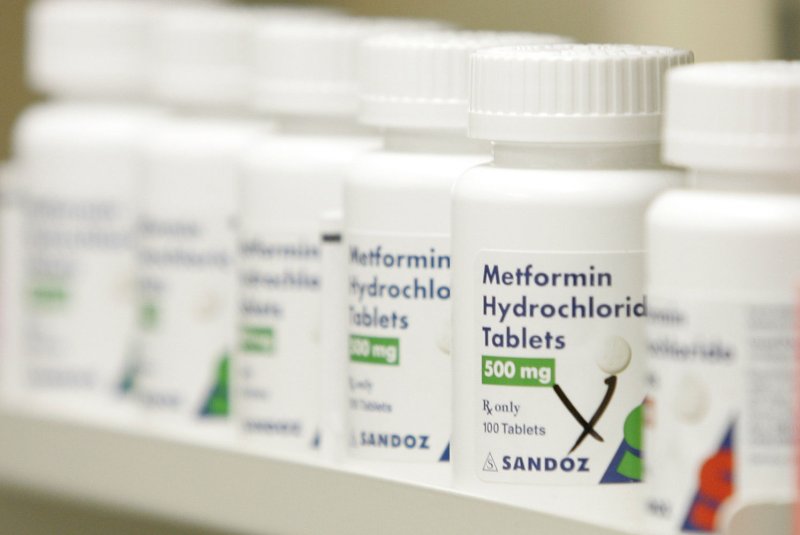Metformin, a common Type II diabetes drug, is being blamed for intersex fish. File photo by Brian Kersey/UPI |
License Photo
MILWAUKEE, April 24 (UPI) -- As the rate of diabetes skyrockets in the United States, so too are prescriptions for the drugs that treat the blood sugar disorder. One of the most common Type II diabetes medication is metformin.
But metformin isn't just being found on pharmacy shelves and private medicine cabinets. It's also increasingly showing up in freshwater systems. Now, new research suggests it could be to blame for intersex fish.
Rebecca Klaper, a researcher at the University of Wisconsin-Milwaukee, has been looking to the drug's prevalence in watersheds, as well as exploring its potential effects on wildlife.
"It is the chemical we found in almost every sample and in the highest concentrations compared to other emerging contaminants -- even higher than caffeine," she said in a recent press release.
Fish expressing combinations of male and female sex organs are increasingly common in waters downstream from water treatment plants. The phenomenon has mostly been blamed on hormone-related drugs like birth control and beauty products such as acne medicine.
Metformin isn't a hormone. Like other diabetes drugs, it targets blood-sugar regulation. But it's also been occasionally used to treat a hormonal disease, common in women, called polycystic ovary syndrome. Klaper believes metformin may act as an endocrine disruptor.
When Klaper exposed fish to metformin in her lab, their growth or physical appearance was not altered, but eggs produced by the females showed signs of male and female morphology -- suggesting metformin is indeed disrupting hormone-related reproductive processes.
Klaper and her colleagues plan to conduct additional experiments in order to locate the exact genomic changes induced by metformin.
"We're now working on a paper that investigates the metabolic pathways at various points in the fishes' life to see what is changing," she explained.
Klaper's latest paper on the subject -- co-authored by Nicholas Niemuth, a researcher in Klaper's lab -- was published online this week in the journal Chemosphere. It will appear in physical form in the journal's September issue.















